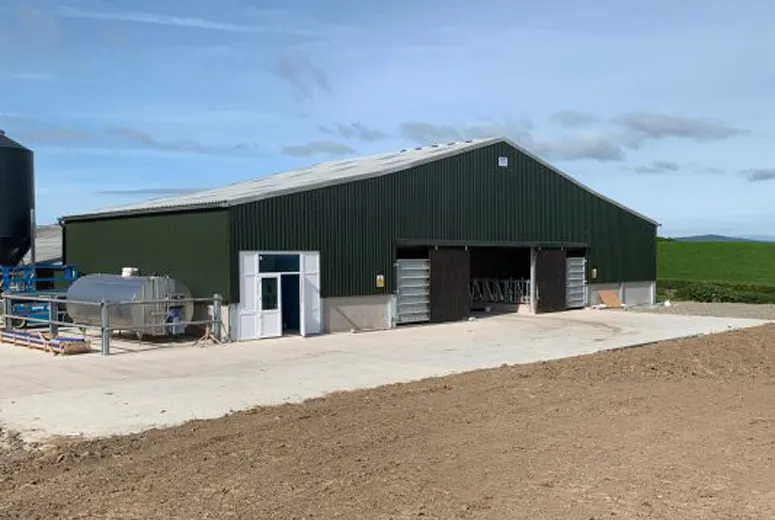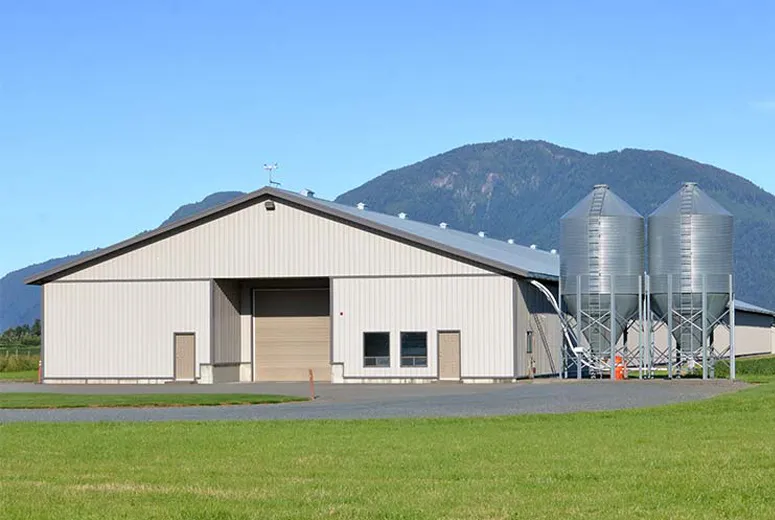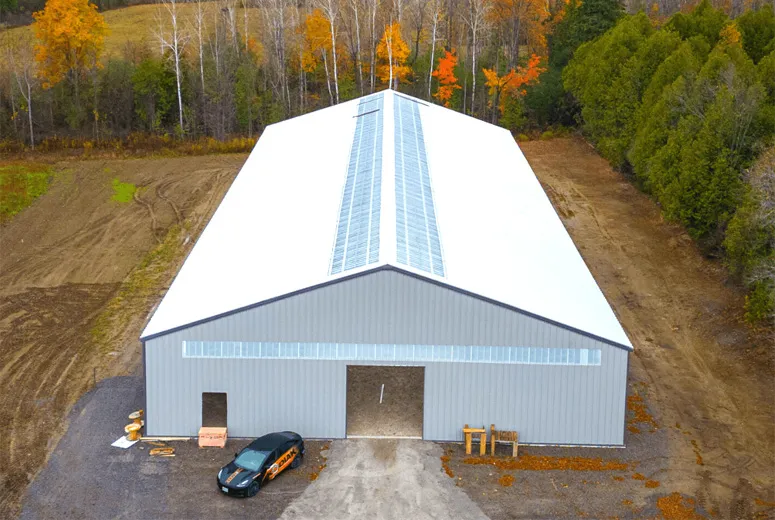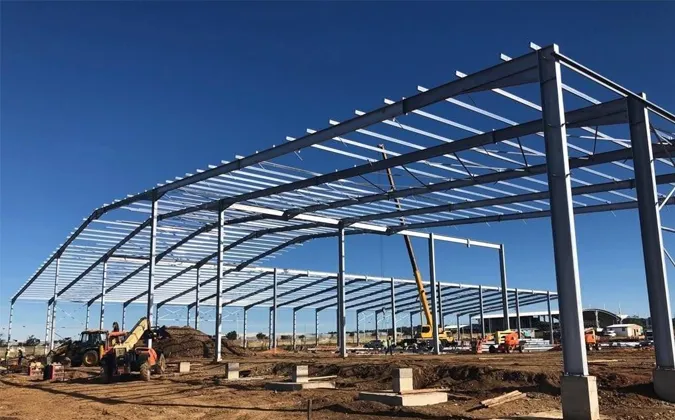Oct . 27, 2025 05:25 Back to list
Converting Agricultural Buildings is a key solution in the construction industry, specifically within housing industry and Agricultural construction. This article explores how Hebei Hongji Shunda Steel Structure Engineering Co., Ltd supports professionals with durable, high-performance products, and explains why this product is an ideal choice for businesses in these sectors.

Table of Contents
- Converting Agricultural Buildings Overview
- Benefits & Use Cases of Converting Agricultural Buildings in Agricultural construction
- Cost, Maintenance & User Experience
- Sustainability & Market Trends in construction
- Conclusion on Converting Agricultural Buildings from Hebei Hongji Shunda Steel Structure Engineering Co., Ltd
Converting Agricultural Buildings Overview
For B2B decision makers, converting agricultural buildings means upgrading or repurposing existing barns, sheds, and outbuildings into modern, code-compliant spaces that support livestock, storage, light processing, or rural accommodation. The approach blends adaptive reuse with new steel structure systems—portal frames, hot-rolled columns, cold-formed purlins, and insulated sandwich panels—to deliver reliable performance and faster schedules compared with ground-up builds. Typical specifications include large clear spans (18–36 m), corrosion-protected members (galvanized or coated), ridge ventilation, curtain sidewalls, washable interior surfaces, and biosecurity-friendly layouts. Whether you’re converting old farm buildings to high-capacity livestock facilities or creating revenue-generating rural workspaces, steel systems provide the structural backbone and flexibility to scale.
Hebei Hongji Shunda Steel Structure Engineering Co., Ltd (HJS) manufactures and delivers detailed farm buildings tailored to site loads, climate, and animal welfare requirements. A typical project replaces aging timber or masonry with a modular steel frame, daylight panels, and insulated roofing for thermal stability and condensation control. For example, a legacy cattle shed can be retrofitted with a new steel superstructure and adjustable ventilation to meet stocking density targets and hygiene standards—often with minimal operational downtime. HJS supports full lifecycle needs, from preliminary scheme design and shop drawings to fabrication, delivery, and on-site guidance.
Benefits & Use Cases of Converting Agricultural Buildings in Agricultural construction
Applications span livestock housing (poultry, dairy, beef, swine), feed storage, machinery sheds, packhouses, biosecure quarantine buildings, and rural commercial units. For housing-industry-adjacent projects, clients increasingly convert heritage barns into worker accommodations, offices, and agritourism hubs—using robust steel frames to meet occupancy, fire, and energy codes while preserving rural character. When converting old farm buildings, HJS optimizes spans for equipment access, integrates ridge and side ventilation, and designs washable interiors for fast turnaround cleaning, critical to animal health and biosecurity protocols.
Competitive advantages include speed to market (off-site fabrication and efficient erection), structural efficiency (optimized steel weights and connections), and low maintenance (corrosion protection and durable claddings). Detailed farm buildings from HJS incorporate BIM-based coordination, standardized node details, and future-ready provisions—power, water, drainage, and PV-ready roofs—so expansions are straightforward. Their livestock steel building solutions are engineered for regional wind, snow, and seismic loads, and can integrate insulated panels, natural lighting, and controlled ventilation to stabilize internal climates and improve feed conversion. Backed by sector-specific engineering and a proven fabrication supply chain, Hebei Hongji Shunda helps owners reduce risk while maximizing asset utilization.
Cost, Maintenance & User Experience
Total cost of ownership in converting agricultural buildings is driven by three levers: structural efficiency, envelope performance, and operational uptime. Off-site fabricated steel reduces on-site labor and crane time, shortening schedules and limiting disruption to ongoing farm operations. Durable coatings, galvanized secondary steel, and simple, replaceable claddings keep maintenance predictable and affordable over decades. Insulated panels and optimized airflow can reduce energy demand and improve livestock comfort, translating into productivity gains and better ROI for integrators and farm owners.
B2B clients in the housing industry and agricultural construction sectors report smoother inspections and easier compliance when structure, drainage, ventilation, and fire separation are handled within one coordinated steel package. Owners value the cleanable interior finishes, daylighting, and clear-span layouts that support mechanized feeding and waste handling. With Hebei Hongji Shunda Steel Structure Engineering Co., Ltd, post-completion support includes spare parts availability, detail drawings for future extensions, and guidance on seasonal maintenance—ensuring predictable lifecycle cost and strong asset value retention. For project budgeting and specification support, review HJS’s livestock steel building solutions here: steel buildings for livestock.
Sustainability & Market Trends in construction
Adaptive reuse is gaining momentum as rural stakeholders prioritize embodied carbon reductions and circular economy practices. Converting agricultural buildings preserves site infrastructure and foundations where feasible, cutting material use and construction waste. Steel is highly recyclable and compatible with low-VOC coatings, daylight strategies, and rainwater harvesting. As welfare, emissions, and energy regulations tighten, demand is rising for well-ventilated, thermally efficient, and easily sanitized facilities that protect both livestock health and operator safety—especially in biosecurity-sensitive segments like poultry and swine.
Hebei Hongji Shunda Steel Structure Engineering Co., Ltd aligns with these trends through precision fabrication, BIM-driven coordination, and envelope options (insulated panels, translucent skylights, and PV-ready roof systems). Their design process emphasizes durable details—gutter protection, condensation control, and corrosion-resistant fixings—that extend service life in challenging agricultural environments. By delivering detailed farm buildings that meet modern performance benchmarks while enabling future adaptations, HJS positions project owners to meet ESG goals, respond to policy shifts, and capitalize on new revenue streams across diversified rural enterprises.
Conclusion on Converting Agricultural Buildings from Hebei Hongji Shunda Steel Structure Engineering Co., Ltd
Converting agricultural buildings delivers faster programs, better compliance, and long-term value for the construction, housing industry, and agricultural construction markets. With engineered steel frames, optimized ventilation, and durable claddings, owners can modernize existing assets and unlock new uses—from high-performance livestock housing to productive rural workspaces. Hebei Hongji Shunda Steel Structure Engineering Co., Ltd stands out for sector-specific engineering, dependable fabrication, and lifecycle support. Ready to plan your next conversion? Contact us: email: warehouse@hongjishunda.com — Visit our website: https://www.hongjishunda.com.
-
Bolted Connections in Steel Frame Warehouse
NewsNov.17,2025
-
Hay Storage in Farm Metal Buildings
NewsNov.17,2025
-
Advantages of a Steel Portal Frame Shed
NewsNov.17,2025
-
The Erection Process of a Steel Building Hangar
NewsNov.17,2025
-
Energy Efficiency of Steel Dome Garage Kits
NewsNov.17,2025
-
Fire Resistance of Kit Metal Garages
NewsNov.17,2025
Products categories
Our Latest News
We have a professional design team and an excellent production and construction team.












